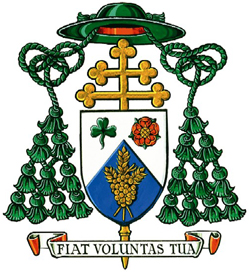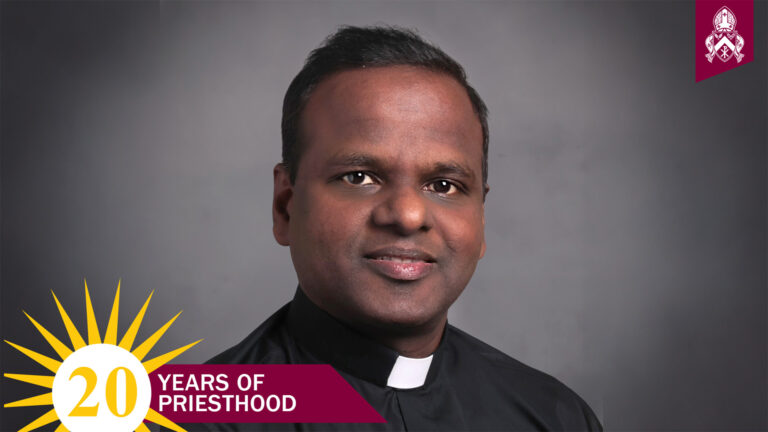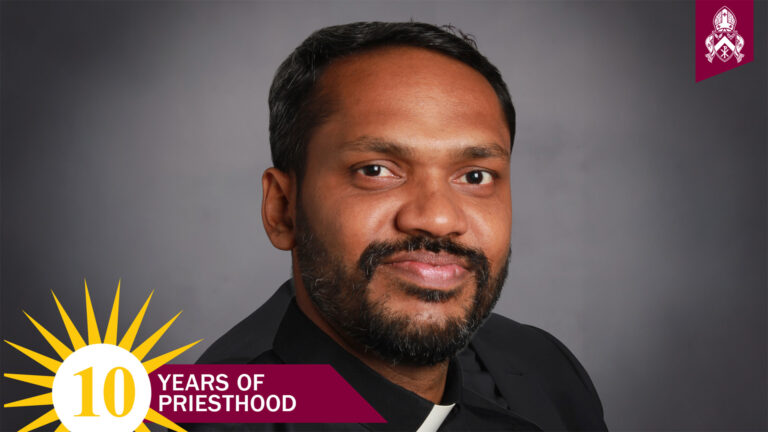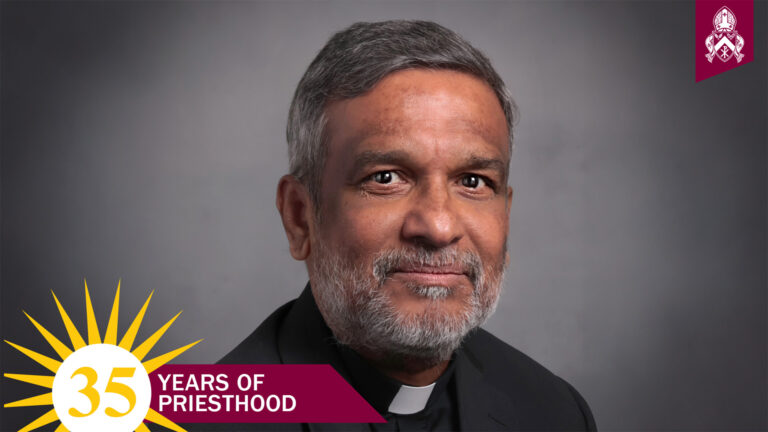Red Mass 2024
Homily
[Galatians 3:1-5; Luke 1; James 2:14-18; Luke 11:5-13]
Our “Red Mass” occurs this year with the Thanksgiving Day weekend on the immediate horizon. This is the first time, in my memory at least, that this coincidence of events has occurred. This affords us the opportunity, in the context of this Eucharistic celebration, to ponder that for which we are grateful to God, particularly as members and guests of the St. Thomas More Lawyers’ Guild. As we do, let us allow the texts we have this evening from the Word of God to guide us.
St. Paul’s letter to the Galatians is a summons to thank God for the Holy Spirit as unmerited gift. In point of fact, our recognition of the need for the Holy Spirit is what inspires this Red Mass. The colour of the vestments recalls, yes, the martyrdom of our patron, but also signals that this is a votive mass of the Holy Spirit, in which we stand before Almighty God aware that we can accomplish nothing apart from the Spirit’s gifts. Saint Paul is criticizing the Galatians because they have somehow fallen into the trap of thinking that we must earn the gift of the Spirit by our good works. But the Holy Spirit is the love of God poured into our hearts, the love God lavishes upon us freely, because He knows we can do nothing apart from His call, favour and blessing.
It is a good reminder for us all, always timely. Members of the legal profession are accustomed to demonstrating personal capacity and professional qualifications for the fulfilment of their tasks and the furtherance of their careers. Personal merit is given very serious consideration as cases are assigned and opinions proffered. It is not so, however, in the realm of the Holy Spirit. We call upon the Spirit’s gifts from the humble acceptance of our utter lack of merit, trusting that God, in His ineffable love for us, will grant us what we need as we need it for the life of faith, and, indeed, for the professional work we offer to God for the accomplishment of His saving purpose. No “work” can ever merit the love of God. It is not “owed” to us in recognition of what we have accomplished, but is freely bestowed.
This is not to say that work has no relation to faith. We hear St. James teach that good works flow from faith and give witness to it. Here we have another reason for our thanksgiving, namely, for the occasions we have, as members of the St. Thomas More Guild, to give expression to our faith in the way we do our work. Here I have in mind not only your many pro bono activities. I think, too, of the very challenging task of finding and honouring the delicate balance between justice and mercy, both constitutive dimensions of the Gospel. Faith teaches that our very existence hinges upon the mercy of God, a wondrous truth that infuses our pursuit of justice with respect for the human dignity of all persons and concern for the common good.
Fundamentally, though, and prior to all such external work, the performative form of faith is prayer. In the text from the Gospel of Saint Luke, Jesus calls us to be persistent in our praying. In judicial terms, we can say that Jesus is articulating here the grounds for appeal. Those grounds are the infinite love and endless patience of God. In our court system, the basis of appeal is usually articulated in negative terms: a claimed error of judgment, insufficient evidence, ineffective assistance of counsel, and the like. Jesus, however, establishes a positive foundation upon which we can confidently bring to God our appeals for assistance or petitions for mercy, namely, God’s sure love for us, His children. Therefore, he says, ask, seek, knock. To paraphrase, Jesus is saying: Do not desist from persistent prayer, because God will never decide not to hear an appeal. Rather, God will always incline His ear to not only the reasoning we present but also, and above all, to the cries of our hearts. Then Jesus assures us that the judgement God renders always favours the giving of the greatest of His gifts: the Holy Spirit, who unites us to God’s only Son and thus draws us into the communion of divine love, which satisfies beyond imagining every authentic human need. This, ultimately, is our greatest reason for giving thanks: God loves us, He always hears and responds. We can place our full trust and complete confidence in the fidelity and mercy of God.
Allow me to add a personal note of thanks to yourselves. Perhaps you are not accustomed to hearing that someone is grateful for lawyers, but I am. I do wish to thank you, the members of the St. Thomas More Guild, for the many ways you place your gifts and expertise at the service of the Church and her mission. With you, I am worried by the many current signs of societal collapse. We need to find ever more effective ways to learn from each other and work together to hold fast and strengthen the common good. I am encouraged by your engagement with this task, and I pledge to you my own abiding commitment to this endeavour. Following the instruction of our Lord himself, let us together ask, seek, and knock, imploring Almighty God to bestow upon us all that we need for the fruitful accomplishment of our individual and collective responsibilities in service of the well-being of His children.
The Church’s greatest act of thanksgiving is the celebration of the Most Holy Eucharist. Here we thank God the Father for the gift of Jesus and the salvation given in him. Through Jesus, may the Heavenly Father bestow upon us in this mass a fresh and abundant outpouring of the Holy Spirit. Only by this gift can we serve; only by this grace can we live. Let us rejoice in it and be ever thankful.
Santa Maria Goretti Parish
Edmonton, AB
October 10th, 2024




